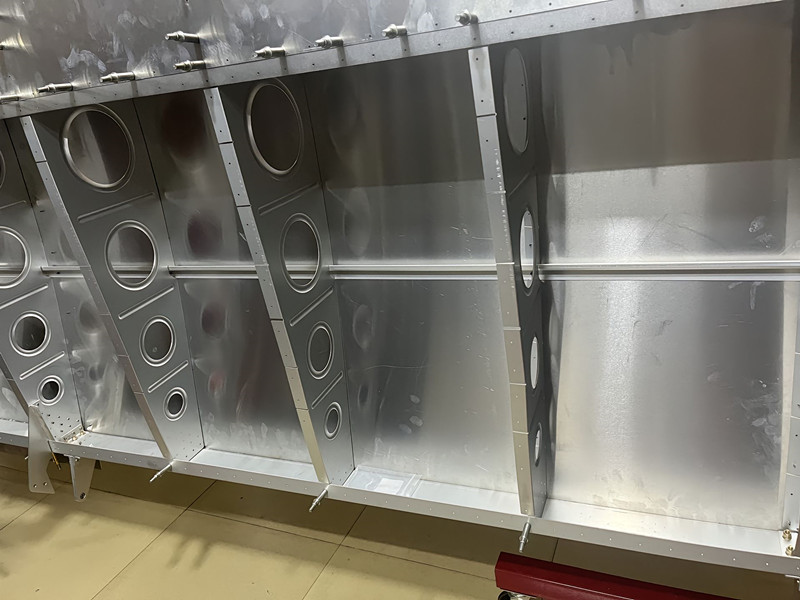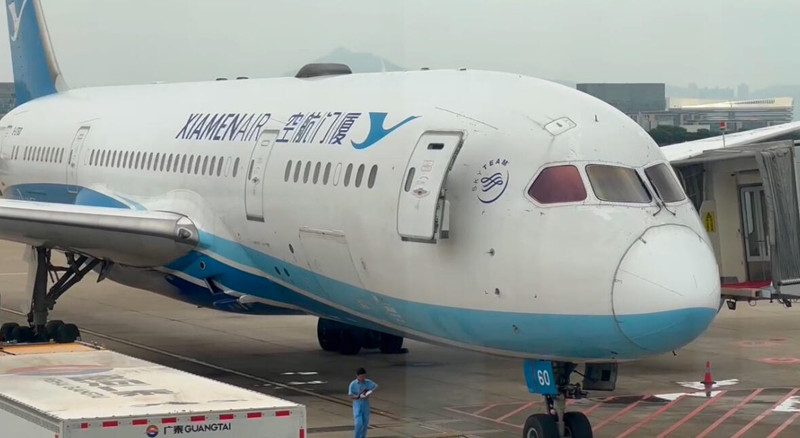Why Is Aluminum Alloy Used for Aircraft Skin?

The aircraft skin is a crucial part of the aircraft structure, serving multiple functions such as bearing load, resisting pressure, and providing corrosion resistance. Aluminum alloy, with its lightweight, high strength, and corrosion resistance, is the material of choice for aircraft skin. This article will analyze in detail the application of aluminum alloys in aircraft skin, focusing on commonly used aluminum alloy grades, and explaining why these grades meet the demanding requirements of aerospace materials.
Why Is Aluminum Alloy Used for Aircraft Skin?
1. Strength-to-Weight Ratio Advantage
One of the most critical considerations in aircraft design is weight. A lighter aircraft structure helps improve fuel efficiency, extend range, and optimize flight performance. Aluminum alloys, with their excellent strength-to-weight ratio, are the ideal material for aircraft skin. Compared to steel and other metals, aluminum alloys offer high strength while significantly reducing the weight of the structure, thus enhancing overall aircraft performance.
2. Corrosion Resistance
Aircraft frequently operate in environments with high humidity, large temperature variations, and salt-laden air. The skin of the aircraft is exposed to these harsh external conditions, making corrosion resistance crucial. Aluminum alloys naturally form a protective oxide layer, which effectively prevents oxidation and corrosion. In aerospace applications, aluminum alloys treated with surface treatments (such as anodizing) can withstand harsh environmental conditions.
3. Good Machinability
Aluminum alloys not only have high strength but also possess excellent machinability. With a low melting point, high ductility, and good weldability, manufacturers can use various processing techniques (such as casting, extrusion, and rolling) to produce complex shapes and thin-walled designs. This characteristic is particularly important for forming the aircraft skin, as it needs to meet aerodynamic requirements with precise curvature and lightweight designs.

Commonly Used Aluminum Alloy Grades for Aircraft Skin
In aircraft skin, the most commonly used aluminum alloys are from the 2XXX series and 7XXX series. These aluminum alloys provide high strength and corrosion resistance, meeting the stringent performance requirements of the aerospace industry.
1. 2024 Aluminum Alloy (Aluminum-Copper Alloy)
2024 aluminum alloy is one of the most widely used aluminum alloys in the aerospace industry. It belongs to the aluminum-copper alloy series and offers very high strength, along with excellent fatigue strength and resistance to corrosion. The tensile strength of 2024 aluminum alloy exceeds 470 MPa, making it an ideal choice for aircraft skin and critical structural components.
2024 aluminum alloy also offers good machinability and weldability, allowing for complex forming processes. In addition, it exhibits excellent fatigue durability, making it suitable for long-term use in aircraft skin. Due to its relatively low corrosion resistance, 2024 aluminum alloy typically requires surface treatments (such as anodizing) to enhance its corrosion resistance, especially when used in marine climates or highly humid environments.
2. 7075 Aluminum Alloy (Aluminum-Zinc Alloy)
7075 aluminum alloy is another widely used aluminum alloy, known for its exceptional strength. It belongs to the aluminum-zinc alloy series, and its tensile strength can reach over 500 MPa, almost equivalent to some low-carbon steels, which makes it suitable for high-stress components in aircraft.
The main advantage of 7075 aluminum alloy is its remarkable strength and fatigue resistance, making it widely used in parts of the aircraft skin that experience significant loads, such as wings, fuselage structures, and other critical areas. While its corrosion resistance is somewhat lower than that of 2024 aluminum alloy, 7075 can still meet aerospace requirements with proper surface treatments, such as anodizing.
In addition, 7075 aluminum alloy has slightly poorer machinability compared to 2024 aluminum alloy, but its superior mechanical properties make it indispensable for high-strength applications. 7075 is commonly used in structural frameworks and other high-stress components in aircraft skin.
3. 7050 Aluminum Alloy (Aluminum-Zinc Alloy)
7050 aluminum alloy is an improved version of 7075 aluminum alloy, offering better corrosion resistance while maintaining high strength. 7050 aluminum alloy is gaining popularity in the aerospace industry, especially in areas requiring resistance to stress-corrosion cracking (SCC) and superior fatigue strength.
7050 aluminum alloy's advantage lies in its excellent corrosion resistance while maintaining high strength, making it ideal for aircraft skin and high-load structural components. Compared to 7075, 7050 exhibits better performance in stress-corrosion cracking, making it an excellent choice for long-term use in aircraft.
Advantages of Aluminum Alloy in Aircraft Skin
1. Lightweight with High Strength
The lightweight nature of aluminum alloys allows aircraft designs to minimize weight, thus improving fuel efficiency. Compared to other metals, aluminum alloys offer an outstanding strength-to-weight ratio, which ensures that the aircraft structure meets the stringent requirements for strength, rigidity, and safety.
2. Excellent Corrosion Resistance
The natural oxide layer formed on aluminum alloys provides them with strong corrosion resistance, which is especially beneficial in high-humidity or salt-laden environments. In the aviation industry, aluminum alloys' resistance to corrosion is a critical factor, ensuring that the aircraft's skin will perform well over time.
3. Adaptability to Complex Shaping
Aluminum alloys are highly malleable, allowing them to be easily formed into complex shapes and thin-walled designs to meet the aerodynamic requirements of the aircraft. Their excellent machinability enables precise control during the manufacturing process, reducing costs and improving overall quality.
Conclusion
Aluminum alloys are the material of choice for aircraft skin due to their excellent strength, lightweight, corrosion resistance, and machinability. Among the various aluminum alloy grades, 2024 aluminum alloy, 7075 aluminum alloy, and 7050 aluminum alloy stand out due to their specific characteristics that make them ideal for aerospace applications. Choosing the right aluminum alloy is crucial to ensuring the performance, safety, and cost-effectiveness of aircraft.